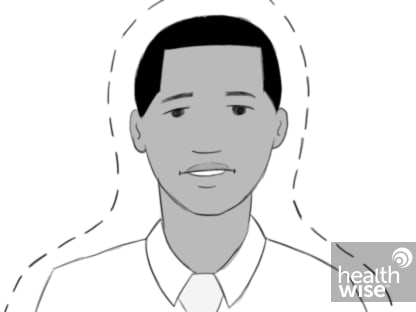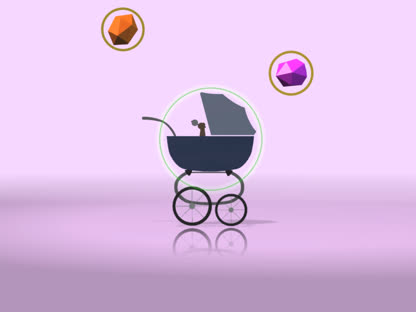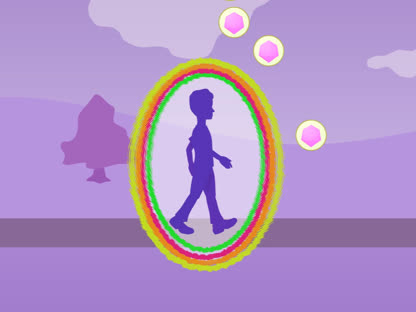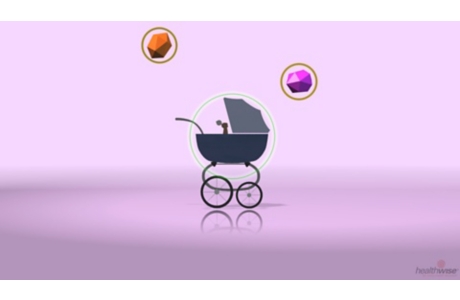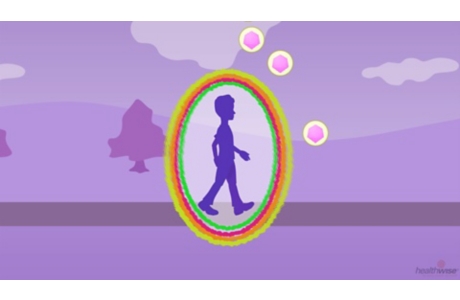Immunizations
Overview
What are immunizations?
Immunizations help keep you and your child from getting certain diseases that can be spread to other people (infectious diseases). They also help reduce the spread of disease to others and prevent epidemics. Immunizations are also called vaccines or vaccinations.
If you get a vaccine, it may not completely prevent you from getting a disease. But it does make it much less likely. If you get a disease even after you have been vaccinated, it usually will be just a mild case.
Vaccines are most often given as a shot (injection). Some are given by mouth as a pill or liquid. Others may be given as a spray (aerosol) into the nose.
What are some reasons to get immunized?
Immunizations save lives. They are the best way to help protect you or your child from getting certain diseases that can be spread to other people (infectious diseases). And there are often no medical treatments for these diseases.
They also help reduce the spread of disease to others to prevent sudden outbreaks of the disease, called epidemics. Preventing the spread of disease is very important for people with weak immune systems. These people may not be able to get vaccines, or vaccines don't work well for them. Their only protection is for others to get vaccinated so illnesses are less common.
Other reasons why vaccines are important:
- They cost less than getting treated for the disease.
- The risk of getting a disease is much greater than the risk of having a serious reaction to the vaccine.
- They are often needed for entrance into school or day care. And you may need them for your job or to travel to another country.
What are the side effects of vaccines?
Most side effects from vaccines are minor, if they occur at all. They may include:
- Redness, mild swelling, or soreness where the shot was given.
- A slight fever.
- Drowsiness, crankiness, and poor appetite.
- A mild rash 7 to 14 days after chickenpox or measles-mumps-rubella shots.
- Temporary joint pain after a measles-mumps-rubella shot.
Ask your doctor or pharmacist about other reactions that could occur. Serious reactions, such as trouble breathing or a high fever, are rare.
If you or your child has an unusual reaction, call your doctor. It's much more dangerous to risk getting the diseases than to risk having a serious reaction to the vaccines.
How safe are vaccines?
Vaccines are safe. The U.S. Food and Drug Administration (FDA) carefully evaluates all vaccines for safety. Federal law requires health professionals to report any reaction following an immunization to the Vaccine Adverse Events Reporting System (VAERS). For more information about how vaccine safety is checked, see www.cdc.gov/vaccinesafety/index.html.
The risk of a serious complication from a disease is far greater than the risk from the vaccine. For example, 1 child in a group of 20 unvaccinated children may die from diphtheria disease. But only 1 child in a group of 14,000 vaccinated children may have convulsions or shock after getting the DTaP vaccine. And that child would recover fully.footnote 1
Health Tools
Health Tools help you make wise health decisions or take action to improve your health.
Vaccine and Immunization Schedules
The U.S. Centers for Disease Control and Prevention (CDC) works with experts and then recommends immunization schedules for the year. The schedules outline the immunizations and booster shots needed.
The schedules are designed to work best with a child's immune system at certain ages and at certain times. They're set up so that your child gets the best protection possible at the earliest age possible from the fewest shots possible.
The CDC recommends schedules for healthy children, teens, and adults. The CDC also has vaccine recommendations for people who have health problems, such as asthma or diabetes, and in other circumstances, like pregnancy.
The schedules are based on the best research available. Experts change them as needed.
A different schedule may not provide protection for your child. If shots are spread out or skipped, a child may get the disease during the delay.
Go to www.cdc.gov/vaccines/vpd/vaccines-list.html for the most current information.
Learn more
Watch
Immunization Records
It is important to keep accurate records of immunizations, including any reactions to the vaccines. When you enroll your child in day care or school, you may need to show proof of immunizations. And your child may need the record later in life for college, employment, or travel.
- Know when each immunization should be scheduled.
Put reminder notes on your calendar or on your phone. You also may want to ask your doctor to send you notices when immunizations are due.
- Be sure your records are accurate.
Have your doctor go over your child's immunization record with you during each office visit.
- Keep your record in a safe place, and don't throw it away.
It is an important part of your child's lifelong medical records.
Learn more
Travel Immunizations
Check with the nearest travel health clinic, your regional health department, your doctor, or the Centers for Disease Control and Prevention website at www.cdc.gov/travel to see what kind of vaccines you should get.
You may need vaccines to protect against:
- Infections, such as shots for polio, diphtheria, measles, whooping cough (pertussis), mumps, or rubella.
- Tetanus.
- Hepatitis A.
- Hepatitis B.
- Yellow fever.
- The flu.
- Complications of pneumonia (pneumococcal vaccine).
- Typhoid fever.
- Rabies.
- Cholera.
You may need other immunizations. It depends on the area you are visiting, how long you will be there, and the purpose of your journey. For example, if you will be in rural Asia for a month or longer, you may need a vaccine for Japanese encephalitis. Or you may need to take medicine for malaria.
Learn more
When to Call a Doctor
Call 911 or other emergency services if you or your child has:
- An allergic reaction, such as difficulty breathing, wheezing, hives, hoarseness, paleness, weakness, a fast heart rate, or dizziness.
- Changes in behavior, such as passing out (losing consciousness), acting confused, being very sleepy or hard to wake up, or not responding to being touched or talked to.
- A seizure.
- Severe belly pain, nausea, vomiting, or diarrhea.
Call your doctor if:
- Redness and swelling at the site of the shot (injection) last longer than 48 hours.
- Your child is 3 months of age or younger and has a fever of 100.4 °F (38 °C) or higher.
- A fever lasts longer than a few days after a shot is given.
- Any unusual reaction occurs.
- Your child has mild belly pain or nausea.
Talk with your doctor about whether you need special immunizations because you:
- Are in close contact with people who have an infectious disease.
- Have planned international travel, especially to developing countries.
- Live with or visit a baby or someone who is pregnant.
- Live with someone who has an impaired immune system.
Self-Care
Many immunizations are given as shots (injections). They may cause brief pain as the needle goes into the skin or muscle. Some vaccines cause more pain than others.
Basic home care can help relieve some of the common, temporary, mild reactions to immunizations. These reactions include fever, swelling or redness, fretfulness, and poor appetite.
A mild skin rash may appear 7 to 14 days after someone gets a shot for chickenpox or measles, mumps, and rubella (MMR). These types of rashes can last several days. They go away without treatment.
- Try using acetaminophen (such as Tylenol) or ibuprofen (such as Advil) to help lower a fever.
Give acetaminophen (Tylenol) or ibuprofen (Advil, Motrin) for fever if the doctor says it is okay. Read and follow all instructions on the label. Do not give aspirin to anyone younger than 20. It has been linked to Reye syndrome, a serious illness.
- Apply a cold pack to the injection site to reduce swelling or redness.
Put the cold pack on the area for 10 to 20 minutes at a time. Put a thin cloth between the cold pack and the skin.
- Plan quiet activities at home for the evening after getting a shot, in case there are side effects.
Learn more
Related Information
- Anthrax
- Cervical Cancer
- Chickenpox (Varicella)
- Fever or Chills, Age 11 and Younger
- Fever or Chills, Age 12 and Older
- Genital Warts (Human Papillomavirus)
- Hepatitis A
- Hepatitis B
- Influenza (Seasonal Flu)
- Measles (Rubeola)
- Meningitis
- Mumps
- Organizing Your Medical Records
- Pneumonia
- Rotavirus
- Rubella (German Measles)
- Shingles
- Smallpox
- Tetanus
- Travel Health
- Tuberculosis (TB)
- Whooping Cough (Pertussis)
Credits
Current as of: April 30, 2024
Author: Ignite Healthwise, LLC Staff
Clinical Review Board
All Ignite Healthwise, LLC education is reviewed by a team that includes physicians, nurses, advanced practitioners, registered dieticians, and other healthcare professionals.
Current as of: April 30, 2024
Author: Ignite Healthwise, LLC Staff
Clinical Review Board
All Ignite Healthwise, LLC education is reviewed by a team that includes physicians, nurses, advanced practitioners, registered dieticians, and other healthcare professionals.

